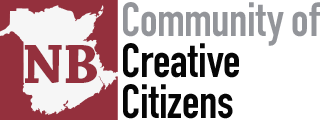About a year ago, The Brookings Institute released a report that provided clear advice to the economic development agencies of America. They warned that the US local and state economic development system must “train its sights on talent development and deployment rather than its current overwhelming focus of business attraction and marketing.”
Canadian industry had already come to the same conclusion a year earlier. In its 2018 Report from Canada’s Economic Strategy Tables it stated that talent is, “the most powerful resource for driving competitiveness and enabling inclusive growth.” It went on to say, “It starts with children. … the kindergarten to Grade 12 education system needs to evolve.”
Educators and industry are in agreement. Competencies for the 21st Century involve more than numeracy and literacy. The new economy based on talent development, relies also on the education of the whole child developing cognitive skills such as critical thinking, problem solving, creativity; interpersonal skills such as empathy, teamwork, leadership; and intrapersonal skills such as responsibility, integrity, conscientiousness. In the talent-driven economy, education is everybody’s business, and the student is now the curriculum.
The leading public education systems in the world have re-imagined education and created new approaches that harness the exponential changes and embrace the talent-driven economies we live in. Personalized learning, experiential learning, and a robust role for community and business involvement form the foundations of these world class systems. New Brunswick’s education system has and will continue to develop successful experiential learning projects and expand its business/student connections through its programs such as mentorship, co-op, virtual co-op, and project-based learning. Yet, as New Brunswick enters the fifth-year of a well-developed and thoughtful ten-year education plan, we continue to struggle to reach the Canadian standard. Our hurdle is not competency nor capability, nor capacity, nor lack of consultation. It is time for New Brunswick to commit to a big idea once again.
The Coalition of Concerned Citizens has stated clearly that New Brunswick is at a crossroads which requires bold decisions-a vision that will serve to focus the whole of our society and organize our best in a determined effort-a mission therefore that prevails and perseveres over changes in political leadership, technologies, or societal demographics. What the New York Times columnist David Brooks observed as being the common ingredient of successful transformation, “A persistence of vision over cycles of change”:
- that by 2030, New Brunswick will be acknowledged by others as the leader among early childhood development to Grade 12 public education systems in the world.
This is not just education reform, but rather an education-led transformation of New Brunswick society. It will in fact be the largest and most comprehensive economic development initiative in the history of New Brunswick. It will require the sustained focus of our collective resources across the province.
Achieving it will determine our economy’s ability to recruit, attract and retain talent and immigrants who will be eager to have their children enrolled in the best system in the world. If we are to continue to reverse our trend of declining population and all its impacts, it will be by attracting and retaining young families. It will enhance the growth of our colleges and universities and our research capabilities. It will drive the level of investments in business, new business growth, and investment in public infrastructure.
Attaining it will require, for instance, improving and aligning the policies and programs of mental health, public health as well as social and family services. It will require a multi-year financial whole-of-government commitment championed by the Chief Executive that permits the implementation of a strategy, rather than projects. Its “persistence of vision” must be reflected in the ongoing mandate letters of every department. While embracing the post-digital era we live in, it must clearly be focused on outcomes not just the technology. In early childhood development and education, it will require ongoing investments in professional development, leadership development, human resources, pedagogy, and partnerships with communities. It will require new methods of assessment, and metrics that expand the definition of educational success, and it will mean rethinking the classroom design itself. It must demonstrate early and continuous improvements that grow and expand along the journey. And it must be system-wide; available in every daycare center, in every school, to every child and to every teacher.
For 20 years, Margaret McCain has argued that, “Canada discards its best talent when children lack adequate nurturing and stimulation in early childhood.” Mrs. McCain and the Margaret and Wallace McCain Family Foundation have continued tirelessly in support of early childhood development. In her introduction to the latest Early Years Study, Mrs. McCain writes “We cannot afford to squander the untold talents of another generation. When Canadian children thrive, Canada thrives.”
Our journey in coping with and eventually emerging from the COVID-19 crisis is into a maelstrom of change world-wide in early childhood to Grade 12 education. It is not an education issue. In the 21st century, it has become an economic development issue. New Brunswick’s leadership and New Brunswickers themselves should choose this long-game approach to the province’s economic plight, for as the Early Years Study states, “economists have done the math finding returns of up to $6 for every dollar spent”.
New Brunswick has the experienced individuals among its ranks of educators who have been recognized internationally, as well as access to international best practices and thought leadership to guide us in co-creating, innovating, sustaining, and becoming acknowledged as the world’s best early childhood to grade 12 public education system.
Daryl K. Branscombe, President
For further discussion, please contact dbranscombe@coalitionnb.com. Phone number 1-506-461-0053. Web site www.coalitionnb.com .
